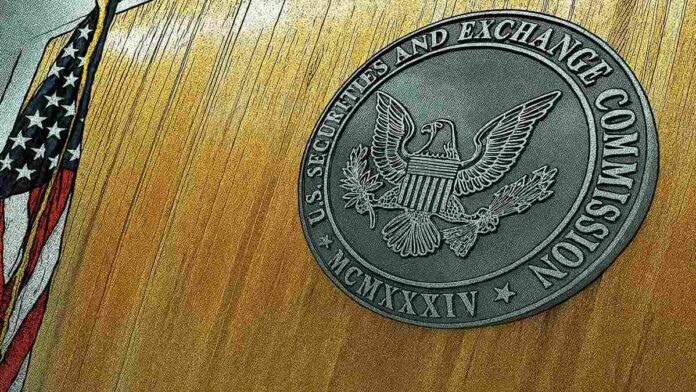As of October 14, 2025, the U.S. federal government shutdown, which began on October 1, has entered its second week, affecting millions of workers and disrupting operations across numerous agencies. Triggered by a failure to pass funding legislation amid partisan disputes, this lapse in appropriations has forced non-essential functions to halt while essential services continue with skeleton crews. Among the hardest-hit are financial regulators like the Securities and Exchange Commission (SEC) and the Commodity Futures Trading Commission (CFTC), which oversee trillions in market activity. The shutdown’s ripple effects include delayed approvals, halted reports, and potential market volatility, raising concerns for investors, firms, and the broader economy.
This article explores the specific impacts on the SEC and CFTC, drawing from contingency plans, expert analyses, and recent developments. While the shutdown’s duration remains uncertain—historically averaging around 10 days but potentially extending longer—it underscores the fragility of regulatory oversight in times of political gridlock.
The SEC: Operating on Fumes with Widespread Delays
The SEC, responsible for enforcing securities laws and protecting investors, has furloughed over 90% of its approximately 4,500 employees, leaving just a skeletal staff of around 390 to handle essential functions. While the agency remains technically “open,” its operations are severely curtailed. Key impacts include:
- Halted Regulatory Reviews and Approvals: The shutdown has frozen the processing of initial public offerings (IPOs), mergers, and new investment products. For instance, reviews of spot cryptocurrency ETFs—such as those for XRP, Solana, Cardano, and others—have been paused, with deadlines in mid-to-late October now at risk of extension into 2026. This delay affects issuers like Bitwise, Grayscale, and 21Shares, potentially stalling billions in institutional inflows and contributing to market uncertainty. Analysts note that while existing ETFs (e.g., Bitcoin and Ethereum) continue trading normally, the backlog could exacerbate volatility in altcoins.
- Enforcement and Oversight Slowdowns: Routine examinations, investigations, and enforcement actions are largely on hold, except for emergencies involving imminent harm to investors or market integrity. This could lead to temporary lapses in monitoring fraud or manipulation, though the SEC has eased some procedural requirements for IPOs to mitigate disruptions.
- Data and Reporting Interruptions: Filings via the EDGAR system continue, but reviews are delayed. The agency has also postponed non-essential rulemaking, such as updates to climate disclosure requirements or AI-related regulations.
Despite these constraints, SEC Chairman Paul Atkins has emphasized ongoing priorities like a new regulatory approach for digital assets, though progress is hampered. Firms are advised to maintain compliance independently, as the shutdown does not excuse violations.
The CFTC: Bare-Bones Operations and Market Data Blackouts
The CFTC, which regulates derivatives markets including futures and swaps, is faring even worse, retaining only about 5.7% of its staff—roughly 39 out of 680 employees. This “severe curtailment” focuses solely on protecting life, property, and market emergencies, leaving broader functions dormant. Notable impacts include:
- Suspended Reporting and Surveillance: The agency has ceased publishing its weekly Commitments of Traders (COT) reports, a critical tool for traders assessing market positions in commodities like oil, gold, and cryptocurrencies. This data blackout could heighten volatility, as seen in past shutdowns where commodity prices swung amid reduced transparency.
- Delayed Approvals and Rulemaking: New product listings, such as crypto futures or ESG derivatives, are on ice. The shutdown also stalls ongoing initiatives, like Polymarket’s regulatory dance with the CFTC, potentially delaying resolutions in prediction markets.
- Enforcement Limitations: While emergency actions (e.g., halting manipulative trading) continue, routine investigations and whistleblower programs are paused, risking unchecked misconduct in volatile sectors like energy and agriculture.
The CFTC’s contingency plan prioritizes market stability, but with limited resources, any major disruption—such as a cyberattack or flash crash—could strain response capabilities.
Broader Implications for Markets and the Economy
The shutdown’s effects extend beyond the agencies themselves. Financial markets, already navigating inflation data releases and Fed rate debates, face heightened uncertainty. Investor sentiment may sour due to delayed IPOs and ETF approvals, potentially reducing capital inflows—estimates suggest a prolonged lapse could shave 0.2% off GDP, echoing the 1995-96 shutdown.
In the crypto space, the pause on altcoin ETFs has sparked frustration, with analysts predicting a “sell-the-news” dip if approvals are deferred, or a 20-50% rally upon resolution. Broader private capital and startups feel the pinch, with halted regulatory progress stalling innovation in fintech and AI.
Politically, the impasse—blamed on Democrats by some for prioritizing certain benefits, or on Republicans by others—has fueled partisan rhetoric, with calls for resolution to prevent further economic harm. As Senate Minority Leader Chuck Schumer noted the situation “gets better” for his party daily, the human cost mounts: over 800,000 federal workers furloughed, including those at the SEC and CFTC.
Looking Ahead: Resolution and Recovery
Historical precedents suggest shutdowns resolve when political pressure builds, often via short-term funding bills. Until then, regulated firms should prepare for extended delays by bolstering internal compliance and monitoring market signals. Once funding resumes, a backlog could prolong recovery, but markets have shown resilience—post-2019 shutdown, equities rebounded quickly.
In summary, the 2025 shutdown has crippled the SEC and CFTC’s non-essential operations, leading to regulatory paralysis that threatens market efficiency and innovation. As negotiations drag on, stakeholders watch closely for signs of a breakthrough to restore normalcy.
Disclaimer
The content on MarketsFN.com is provided for educational and informational purposes only. It does not constitute financial advice, investment recommendations, or trading guidance. All investments involve risks, and past performance does not guarantee future results. You are solely responsible for your investment decisions and should conduct independent research and consult a qualified financial advisor before acting. MarketsFN.com and its authors are not liable for any losses or damages arising from your use of this information.





